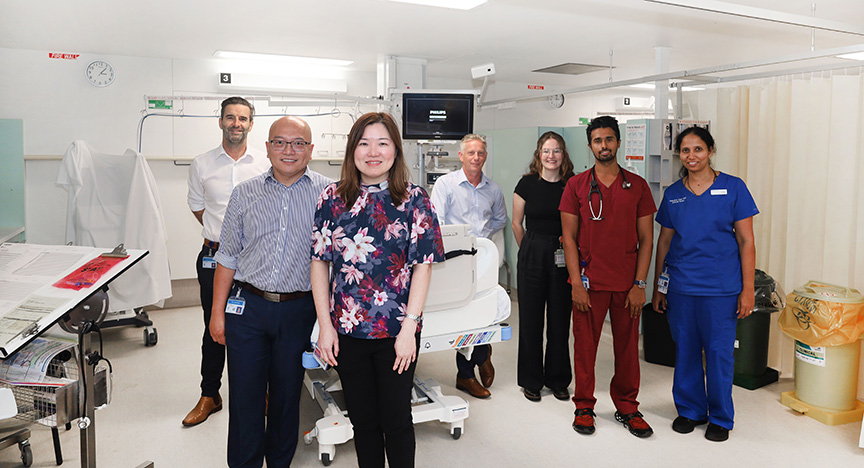
Senior Pharmacist Dr Mandy Ng
Senior Pharmacist Dr Mandy Ng has coordinated a herculean effort to reform safety protocols for the use of high-risk Heparin across QEII Hospital.
The HERCULES (Heparin Review, Consultation Liaison and Education Service) is a quality improvement project developed in response to the risks associated with intravenous heparin despite clinicians’ adherence to existing protocols.
Unfractionated heparin is a life-saving blood thinning medication that is commonly used to treat conditions such as Acute Myocardial Infarction, Deep Venous Thrombosis and Pulmonary Embolism. But Mandy points out that too much Heparin can lead to an increased risk of bleeding events and associated complications.
“Heparin has complex and often unpredictable pharmacological properties that lead to a multitude of challenges in dosing, monitoring and titration despite existing protocols and guidelines,” Mandy says.
“The HERCULES program is an initiative that was formed with the Intensive Care Unit and pharmacy teams that provides a 24/7 safety net for IV heparin. We are now fortunate to have extended the service to the Emergency Department to incorporate all areas of the hospital.”
She said investigating the pharmacology, the clinical evidence and experience, and system changes was essential to the program helping doctors avoid the risk of a bleed.
The incidence of significant over-anticoagulation (measured by an APTT > 200 seconds) at QEII has decreased from 6.41 per cent in 2018 to an all-time low of 2.06 per cent in 2023 because of the efforts of the HERCULES project team.
Another focus of the HERCULES program is to enhance the patient experience by reducing the need for frequent blood tests and long stays in hospital. Achieving the target therapeutic range for Heparin within a measurable and stable window, reduces the need for repeat testing and disturbance for patients during their stay.
"We want to ensure seamless care for patients receiving continuous intravenous heparin infusion, which reinforces our introduction of a dedicated team operating round-the-clock," explains Mandy.
"Our ultimate goal is to instil confidence in patients, knowing they're receiving the best possible care."
As the program continues to evolve, Mandy remains committed to driving positive change in patient care. Mandy says that this program would not have achieved the success it has without thanks to co-founder of the program A/Professor Nai An Lai (Senior Intensivist), Dr Michael Daly (Director Medicine & Emergency Services), Dr David Stewart (Director of Intensive Care Unit), the Intensive Care Unit Outreach registrars and nurses, and her pharmacist colleagues.